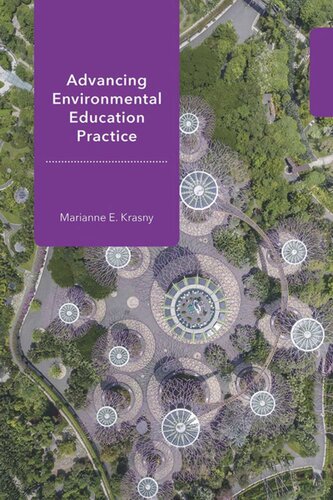

Most ebook files are in PDF format, so you can easily read them using various software such as Foxit Reader or directly on the Google Chrome browser.
Some ebook files are released by publishers in other formats such as .awz, .mobi, .epub, .fb2, etc. You may need to install specific software to read these formats on mobile/PC, such as Calibre.
Please read the tutorial at this link: https://ebookbell.com/faq
We offer FREE conversion to the popular formats you request; however, this may take some time. Therefore, right after payment, please email us, and we will try to provide the service as quickly as possible.
For some exceptional file formats or broken links (if any), please refrain from opening any disputes. Instead, email us first, and we will try to assist within a maximum of 6 hours.
EbookBell Team

0.0
0 reviewsIn this important intervention, change-agent Marianne E. Krasny challenges the knowledge-attitudes-behavior pathway that underpins much of environmental education practice; i.e., the assumption that environmental knowledge and attitudes lead to environmental behaviors. Krasny shows that certain types of knowledge are more likely than others to influence behaviors, and that generally it is more effective to work with existing attitudes than to try to change them. The chapters expand the purview of potential outcomes of environmental education beyond knowledge and attitudes to include nature connectedness, sense of place, efficacy, identity, norms, social capital, youth assets, and individual wellbeing.
Advancing Environmental Education Practice also shows how, by constructing theories of change for their environmental education programs, environmental educators can target specific intermediate outcomes likely to lead to environmental behaviors and collective action, and plan activities to achieve those intermediate outcomes. In some cases, directly engaging program participants in the desired behavior or collective action can lead to changes in efficacy, sense of place, and other intermediate outcomes, which in turn foster future environmental actions. Finally, Advancing Environmental Education Practice shares twenty-four surveys that assess changes in environmental behaviors and intermediate outcomes, and provides guidelines for qualitative evaluations.